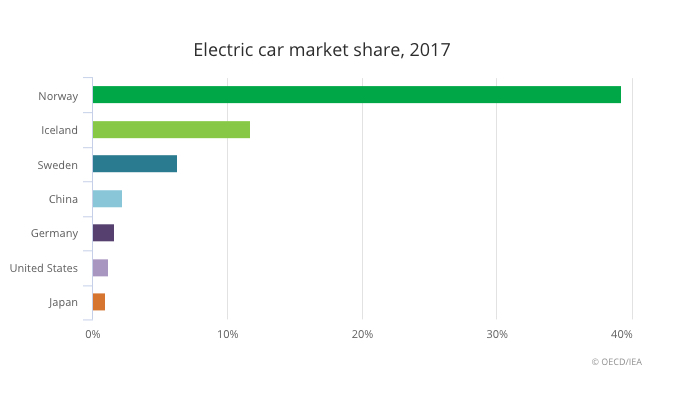Europe to spend billions on lithium-ion battery plants
One in every twenty Europeans works in the automotive industry and the European Union believes that unless it catches up on battery technology, those jobs are at risk.
That's why the group is planning to allow state aid for electric battery research and will offer billions to companies willing to build giant plants, it said Monday.
"Public investment in developing the battery industry in the EU is a no-brainer." - European Battery Alliance."Batteries will be as essential to the automotive industry of the 21st century as the combustion engine was in the 20th century," Maros Sefcovic, energy vice president of the European Commission, said commenting on the one-year anniversary of the European Battery Alliance (EBA). "If the EU is to maintain its leadership in the automotive sector, but also in clean energy systems, it has to have independent capacity to develop and produce batteries."
The pieces are in place and the objective is clear - to reduce reliance on batteries from Asia, particularly, China and South Korea, as European carmakers come under increasing pressure to catch onto the ongoing electric vehicles (EVs) boom.
Battery cell maker Northvolt, which has already begun building in Sweden what will be Europe's largest lithium-ion battery cell factory, said Monday it would ask the European Investment Bank (EIB) for additional funds to speed up construction.

 It also said it had secured a deal with German carmaker BMW and Belgian materials and recycling firm Umicore to design and commercialize a process that would give vehicle batteries a second lease of life as storage products before recycling them.
It also said it had secured a deal with German carmaker BMW and Belgian materials and recycling firm Umicore to design and commercialize a process that would give vehicle batteries a second lease of life as storage products before recycling them.
BMW will provide expertise in battery cell development and Umicore will be responsible for developing active anode and cathode materials and recycling, the companies said.
The EU says partnership like this are set to boom as EBA now offers five types of funding, some of which allow country members to finance 100 percent of research, as long as they involve some cross-border projects.
EU-based battery industry
"The creation of an EU-based battery industry is a long term strategic goal. One which we cannot expect car manufacturers to support on their own," the European Battery Alliance said. "Given the promise a long term rewards for the EU, public investment in developing the battery industry is a no-brainer."
To date, there are 260 companies involved across the supply chain and four groups have expressed interest in building a Gigafactory, Sefcovic said.
Other than Northvolt, there are three groups moving forward with plans to build lithium-ion battery plants: French battery company Saft has partnered with Siemens, Solvay, and Manz; Umicore wants a factory to make battery materials in Poland, and Germany battery maker Varta is likely to announce a collaboration with US carmaker Ford.
Asian companies are getting in the game in Europe, too: South Korea's LG Chem and Samsung are looking to build plants in Poland and Hungary, respectively, while China's No.1 maker of battery cells for EVs, CATL, will build one in Thuringia, in east-central Germany.